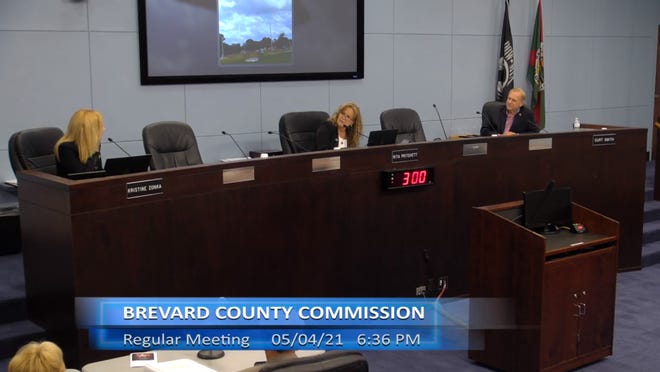Starting at 1 p.m. this Thursday, by order of the Brevard County Commission,the Mims water supply will no longer be fluoridated to the specifications recommended by public health agencies to prevent cavities.
The announcement of the decision comes one week after a snap unscheduled commission vote, raising questions about whether the surprisemove runs afoul of Florida’s Sunshine Laws that require both adequate public notice and meaningful citizen participation in votes by elected officials.
Mims residents with whom FLORIDA TODAY spoke last week were all unaware of the vote, and were opposed to the motion and the lack of transparency or debate.
The County Commission voted unanimously on May 4 to cease the addition of supplemental fluoride at the Mims Water Treatment plan which serves 8,000 residents in unincorporated areas in North Brevard. The vote followed a motion by District 1 commissioner and chair Rita Pritchett, who cited unsupported claims that fluoride had adverse health effects.
“To fulfill the directives of this motion, the supplemental fluoride feed will be stopped at 1 p.m. on Thursday, May 13th, 2021. Please accept this e-mail as notification of our change in the Mims water treatment process,” read a statement from the Brevard Utility director Edward Fontanin to county administrators, state health and environmental agencies and Chair Pritchett.
Fontanin’s office did not return a reporter’s call Tuesday.

Fluoride is a mineral that is naturally occurring in water. But the practice of adding or reducing the level of fluoride to a recommended quantity, is widespread across the United States and has been heralded as one of the greatest public health triumphs of the last century due its significant role in reducing childhood and adult cavities. The practice is supported by the American Dental Association, the American Medical Association, the Centers for Disease Control, the Florida Department of Health as well as the Brevard Dental Society and numerous other groups.
In Mims, the groundwater has a naturally occurring fluoride levels of 0.2 mg/L and is fluoridated to a level of 0.64 mg/L as it enters the distribution system, according to the county. The Florida Department of Health recommends fluoridating water to an optimal level of 0.7 mg/L.
Without the added fluoride the water reaching customers will revert to the naturally occurring level of 0.2mg/L which experts say is fairly average but insufficient to provide substantial health benefits.
The vote, taken a week ago, was not announced in the commission’s meeting agenda, allowing virtually no chance for the public input.
Pritchett’s request was introduced verbally and never repeated or clarified throughout a brief, seven-minute discussion preceding the vote.
“It (fluoride) raises the risk for high blood pressure, it ages you quicker,” Pritchett said at the meeting, repeating a number of claims by critics of water fluoridation that health experts say has little basis in credible research.
It was not clear whether Pritchett consulted any local experts before making her recommendation to the board. She attributed raising the issue only to “an email that was sent out to us about fluoride” that “retriggered something in me,” though she did not elaborate.
Three commissioners said after the vote they weren’t sure on what they had voted on. But they also said that because the Mims water system was wholly in Pritchett’s district, they had no opposition to her “doing whatever” in her district. Commissioners repeatedly defended Pritchett’s request by pointing to what they claimed was “science on both sides” of the fluoride debate.
Pritchett could not be reached Tuesday for comment. At least a few constituents had called or emailed her office asking for information on the decision, a staffer told FLORIDA TODAY.
Dr. Johnny Johnson, president of the American Fluoridation Society a nonprofit group of professionals , who testifies in favor of fluoridation across the country, and previously spoke in favor keeping fluoride in the Melbourne water supply, questioned the legality of the move to halt fluoridation in Mims.
